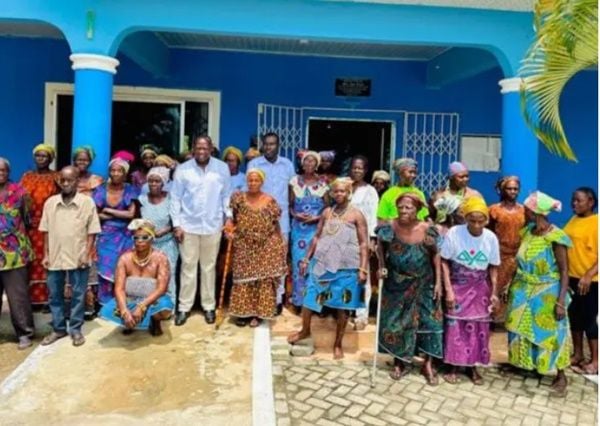Deputy Minority Leader Emmanuel Armah-Kofi Buah, representing the Ellembelle constituency in Parliament, has called on the government to critically reassess the Livelihood Empowerment Against Poverty (LEAP) programme to enhance the support offered to elderly citizens. This statement was made during the World Elderly Care Day celebrations held at the AYA Community Centre in Ampain, where he addressed a gathering of over 100 elderly individuals. Buah highlighted the central theme of the event, “Ageing With Dignity: The Importance of Strengthening Care Support Systems for Older Persons,” emphasizing that older citizens deserve comprehensive care systems that cater to their unique needs and promote their well-being.
In his address, Buah underscored the urgent need for improved healthcare and social support mechanisms that ensure the elderly can age with dignity. Despite acknowledging a recent adjustment in the LEAP programme, he pointed out that the current support provided is still inadequate, particularly in the context of soaring inflation and the economic challenges it brings. He lamented that many elderly individuals have yet to register for the LEAP programme, which suggests a significant gap in outreach and accessibility. The MP’s call to action reflects a broader concern for the welfare of the aging population in Ghana, urging more robust governmental measures to uplift their quality of life.
Furthermore, Buah posited that Ghana must undergo deep national reflection on how to make the lives of its elderly citizens more meaningful. He pressed for a comprehensive review of the LEAP programme to ensure it aligns with contemporary needs and challenges faced by the older demographic. These reform efforts should not only focus on financial assistance but should also expand into social programs aimed at providing healthcare access and shielding the elderly from neglect and abuse. Buah’s advocacy for systemic change highlights the necessity of creating a nurturing environment for senior citizens, where dignity and respect are paramount.
The MP also expressed discontent over the insufficient cash assistance and healthcare provisions currently available to elderly citizens in Ghana. He advocated for a learning exchange with nations that have established more effective support systems for their aging populations. Buah’s perspective is clear: Ghana should aspire to be a country where hard work throughout one’s life leads to sustainable support systems that are available during old age. Such aspirations echo the sentiments of many social advocates who demand better frameworks to address the multifaceted needs of the elderly, ensuring they live their twilight years with security and grace.
During the World Elderly Care Day event, Buah took the opportunity to showcase some positive initiatives, particularly the contributions of the AYA Elderly Care Centre. He noted that since its inception, the centre has successfully provided free eye screenings and glasses, significantly enhancing the well-being of elderly residents in the district. This intervention reflects the kind of targeted support that is essential for improving the elderly’s quality of life, reaffirming the idea that practical aid can have a profound impact on physical health and overall happiness among older citizens.
The celebrations also included the distribution of meals, food packs, and monetary gifts to the elderly attendees, reflecting a community-driven effort to honor and acknowledge the contributions of senior citizens. This gesture complements Buah’s overarching message about the necessity of care and respect for the elderly and serves to foster a culture that values aging members of society. As families and communities come together to support their older generations, it becomes imperative for the government to fortify its policies and programmes, ensuring they are resilient and responsive to the evolving needs of the aging population in Ghana.














